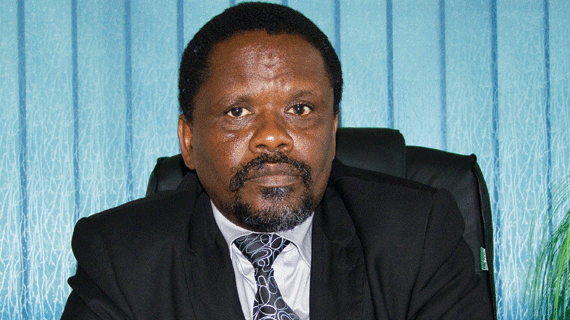
IN last week’s article we looked at the definition, strengths and weaknesses of a democratic system, be it of governance or other institutions.
Basically, Democracy is anchored on the principles of legal equality, personal freedoms and a rule of law. The greatest weakness of democracy was viewed to be its upholding of the majority rule principle at the expense of minorities.
This week’s discourse is an en-devour to define and evaluate a dictatorship system of governance. Dictatorship has been defined as a form of government where political authority is monopolised by a single person or political entity and is exercised through various oppressive mechanisms.
It is a type of authoritarianism, in which politicians regulate nearly every aspect of the public and private behaviour of normal people. The insinuation here sounds like abnormal people can be subjected to these dehumanising regulations without any qualms.
Totalitarianism and authoritarianism both thrive on political propaganda as a means to suppress proponents of alternative governance systems.
Mao Zedong is believed to have caused the death of between 40 and 70 million Chinese. Adolf Hitler’s policies and orders led to the death of over 11 million non-combatants. Leading modern totalitarian dictators include Hitler of Germany, Mussolin of Italy and Joseph Stalin of the Soviet Union.
Mabuto Sese Seko and Ferdinand Marcos of Zaire and the Philipines respectively, jump to mind when one thinks about Africa and Latin America dictators. It would appear all dictators share the following attributes, ruthlessness, intolerance of opposing views, wealth amassing and usage of the scorched earth punishment to silence their opponents.
Record has it that Marcos wife had 365 pairs of shoes, meaning that she could change pairs of shoes daily.
- Chamisa under fire over US$120K donation
- Mavhunga puts DeMbare into Chibuku quarterfinals
- Pension funds bet on Cabora Bassa oilfields
- Councils defy govt fire tender directive
Keep Reading
More often than not, dictators emerge after colonial oppression. The dictator offers oneself as an emancipator, in the course of which he or she graduates into a fully-fledged dictator. The credentials that give the dictator the licence to rule eternally are traced to the emancipatory liberation war involvement.
Despotism is a form of a government where a single entity rules with absolute power. This entity may be an individual in the case of an autocracy or a group in an oligarchy. Despotism may take a tyrannical route, referring to dominance through threat of punishment and violence.
Authoritarian dictatorships manifest themselves in little political mobilisation, coupled with a small group that exercises power within formally ill-defined limits.
The following serve as springboards for dictatorships:
Family dictatorships — Power is inherited through family ties,
Millitary dictatorship – Power comes through military force or a coup d’etat resulting in military juntas,
Constitutional dictatorship – Power emanates from the constitution for example in an attempt to deal with an emergency,
Self coup – It results from suspending existing democratic mechanisms after attaining office by incumbent
Proponents of dictatorships arguments: Dictatorships are developmentally focused, owing to efficient and straightforward decision-making.
Dictatorships enhance personal discipline and order.
Dictatorships control variables of human development better.
Dictatorship resist income redistribution pressures.
Dictatorship is an economical institution, as such elections are a luxury reserved for developed countries.
Dictatorships are good for countries emerging from civil wars
Dictatorships have a flexible economic policy that breeds growth
Dictatorships help achieve social stability
The lasting and biggest economic miracles have occurred under dictatorships.
Dictatorship outsmarts democracy in growth and economic development
Dictatorship breeds order and brings development and liberal democracy
Dictators incentivise development and reduces social differences
Proponents of democracy: Opposition defines ambiguity
Opposition can be baffled yet undeterred
Dictators decisions undermine the people and are unaccountable
Development is not possible when there is no succession in the government
Dictator’s priority is to cling onto power
Dictatorship brings profits only to the dictators and their cronies not to the citizens
Dictatorship is a threat to diversity and multi–ethinicity
Good development should ensure personal freedoms
Dictatorship transforms national policies into irregularities
Development occurs when a dictator reverts to democracy
Dictatorships are known for central planning and mass killings
It is within Zimbabweans’ God given right to choose between democracy, dictatorship or a dynasty, as a system of governance they want.
Moses Tsimukeni Mahlangu is the general-secretary for Zimbabwe Urban Councils Workers’ Union. He is a labour consultant and arbitrator. Feedback: E-mail: [email protected]










